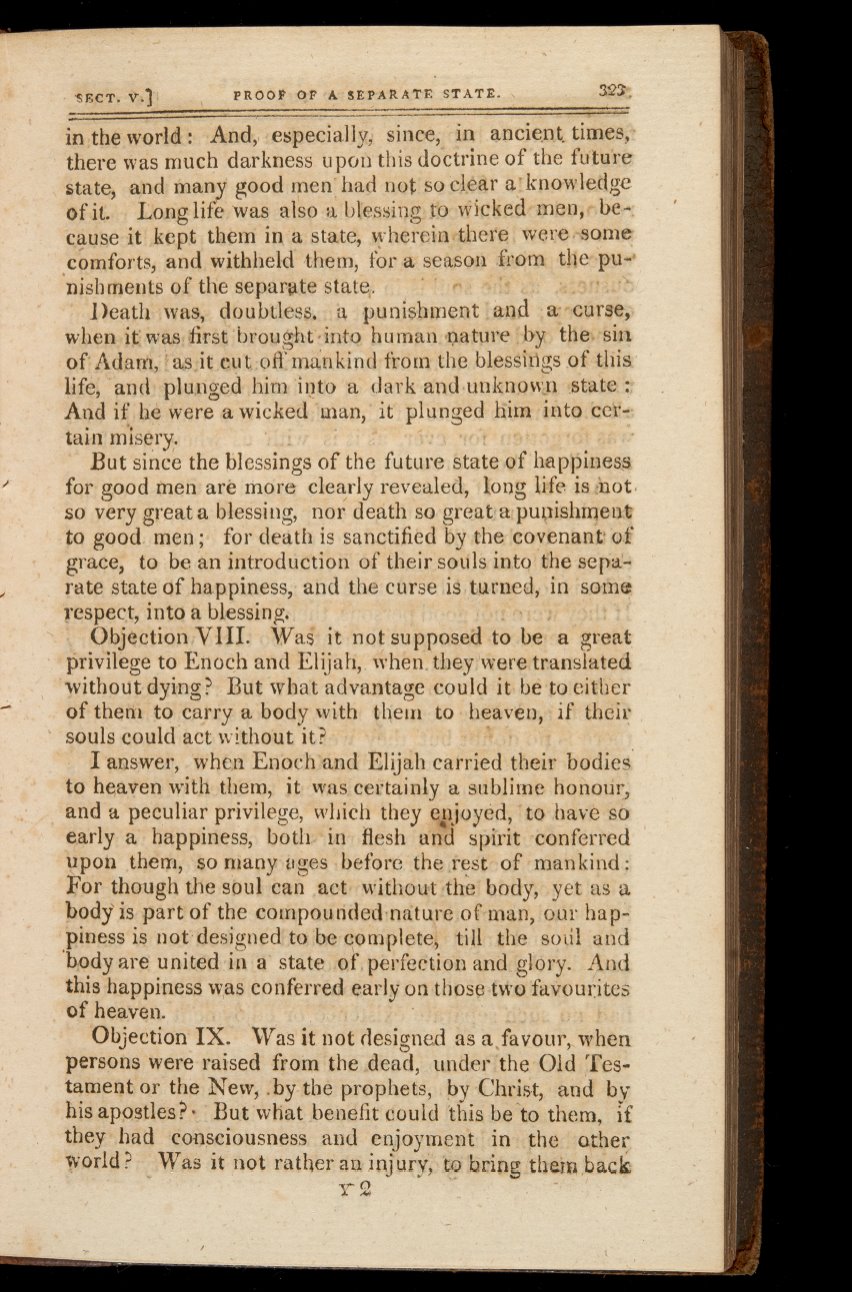

SECT.
V.1
PROOF
OF
A
SEPARATE STATE.
323,
in
the
world
:
And,
especially; since, in
ancient
times,
there
was
much darkness
upon
this
doctrine
of
the
future
state, and many good men had not
so
clear
a'
knowledge
of
it.
Long
life
was
also a blessing to
wicked men,
be-
cause it
kept
them in
a
state, wherein
there were.
some
comforts,
and withheld
them, for
a
season
from
the pu
nishments
of
the
separate
state.
Death
was,
doubtless.
a punishment and a curse,
when
it
was
first
brought
,into
human nature
by
the
sin.
of
Adam, as
it
cut
-off
mankind
from
the blessings
of
this
life,
and
plunged
him
into
a
dark
and unknown
state
:
And
if
he
were
a
wicked
man,
it plunged him into cer-
tain
misery.
But
since the blessings
of
the
future state
of
happiness
for good men
are more
clearly revealed, long
life
is
:not.
so very
great
a
blessing,
nor
death
so
great
a
punishment
to
good
men; for death
is
sanctified
by
the
covenant of
grace, to be an
introduction
of
their
souls into the
sepa-
rate state of
happiness,
and
the curse
is
turned,
in
some
respect, into
a
blessing.
Objection
VIII.
Was
it not
supposed
to be a
great
privilege to
Enoch and
Elijah,
when they were
translated
without
dying?
But what advantage could it
be
to
either
of
them
to
carry a
body with
them
to heaven,
if
their
souls could
act without
it?
I
answer, when
Enoch and
Elijah carried their
bodies
to heaven
with them,
it
was
certainly
a
sublime
honour,
and
a peculiar
privilege,
which
they enjoyed,
to
have
so
early
a
happiness, both
in flesh
and
spirit conferred
upon
them,
so
many ages before the
rest
of mankind:
For
though the
soul can
act without
the
body,
yet
as
a
body
is
part of
the
compounded-nature
of-man,
our hap-
piness
is
not
designed
to
be
complete,
till
the
soul
and
'body
are
united
in
a
state
of.
perfection
and glory.
And
this happiness
was
conferred early
on
those
two
favourites
of
heaven.
Objection
IX.
Was
it not
designed
as
a,favour, when
persons
were
raised from the dead,
under
the
Old
Tes-
tament
or the
New, .by the
prophets,
by
Christ,
and
by
his
apostles?.
But what
benefit
could
'this
be-to them,
if
they had consciousness and
enjoyment
in
the
other
world? Was it
not
rather an
injury,
to
bring them back
Ì

















